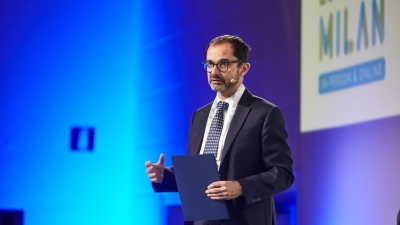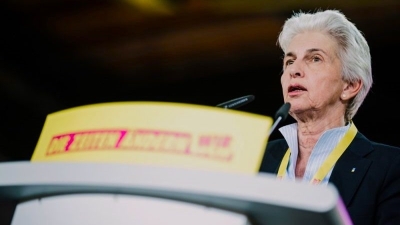EU Commission mulls cloud providers regulation, update of fair share tax

Looking at how technology will impact the EU’s telecom industry, the European Commission has put into writing its thoughts regarding the regulation of cloud providers and an updated version of the fair share tax.
The Commission has been working on a white paper called “Building Europe’s Digital Infrastructure of Tomorrow”, set for publication on 21 February and laying the foundations for wide consultation with third parties ahead of a new EU-wide telecom act during the next mandate.
Single Market Commissioner Thierry Breton called this future act a ‘Digital Networks Act’.
“Cars communicating with each other, doctors caring for their patients at a distance, and other future applications facilitating business and improving the lives of citizens depend on the availability of high-performing digital infrastructures,” explains the Commission document, seen by Euractiv.
Regulation of cloud providers
According to the Commission, the future of telecom is bound to a process of “softwarisation”, also called “cloudification” of the telecom market.
The Commission understands it as the convergence of cloud infrastructures and telecommunication services. This process “raises the question whether the players […] should not fall under equivalent rules applicable to all”.
It then states that “recent technological changes create an opportunity for alignment for the operations of electronic communications and cloud services with the development of pan-European core network operators”.
A greener fair share tax
To achieve this society relying on ultra-low latency services like standalone 5G or fibre, the Commission calculated that the investment needs will be equal to over €200 billion, already announced in the Digital Decade target report.
The Commission fears whether “telcos will be able to find [this amount of] funding,” underlying that investors’ reluctance might be due to the fragmentation of the European telecommunications market.
Therefore, the Commission refers to the ‘senders-pay’ (or fair share) initiative, according to which the largest traffic generators, like Netflix or Google, would have to financially contribute to the maintenance of telecom networks proportional to the traffic they bring in.
Furthermore, the EU executive states that “it is essential that all players of the digital network ecosystem […] cooperate towards an efficient use of resources”, quoting carbon footprint, emissions transparency and environmental impact of video resolution settings.
The senders-pay initiative has been mainly supported by France and Spain with Laure de la Raudiere, President of Arcep, the French telecom regulatory authority and member of BEREC suggesting in an interview at the end of January that Big Tech could be made financially accountable for its induced environmental footprint.
In her view, Big Tech are responsible for setting by default the loading of movies in very high definition for video-streaming platforms like Netflix or loading videos into the cache for seamless automatic playback for social media like Instagram, TikTok or YouTube.
Consequently, increased traffic leads to buying new endpoints, which are responsible for 80% of the digital carbon footprint, according to de la Raudière.
She concluded she would be keen to work with EU partners to look into how these companies could be made accountable for these incidental effects.

Telecoms: Commission mulls market deregulation, infrastructure resilience, spectrum governance
According to information gathered by Euractiv, the draft proposal of the Commission’s long-awaited telecom white paper could including market deregulation, cloudification, infrastructure resilience and spectrum.
Market concentration
The Commission notes “around 50 mobile operators, and more than 100 fixed operators in the EU” and laments a lack of European operators operating cross-borders.
The Commission does not clearly suggest deregulation of EU telecom legislation but a rethinking of the legislation.
Yet, this should be put into perspective with the 6 February Gigabit recommendation, which, according to telecom legal expert Innocenzo Genna talking to Euractiv, “goes in the sense of a phase-out of the EU’s telecom regulation”.
With this recommendation, the Commission is putting pressure on telecom national regulatory authorities to “not apply a price regulation for operators on fixed networks,” said Genna, explaining it goes against the European Electronic Communications Code and will make cross-border integration of telecom operators harder.
Spectrum governance
Considering that the “way spectrum is managed and used in one member state has an impact on the internal market as a whole” and that it plays a pivotal role in future wireless connectivity, the Commission suggests strengthening “the EU level coordination of auction timing and authorisation of new spectrum bands” and the consideration a uniform criteria “for the coordination of authorisation procedures”.

EU broadband law final compromise: Useful legislation, with ‘minimal direct impact’
EU telecom associations have criticised the course pursued by negotiators on the Gigabit Infrastructure Act, saying the text will allow the speeding up of telecom infrastructure roll-out but will have a minimal impact due to shrinking returns on investments.
Read more with Euractiv




